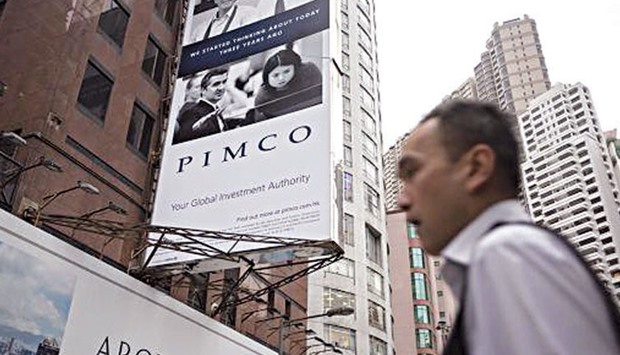After corporate debt investors suffered through the worst-ever start to a year, some of Wall Street’s biggest money managers and strategists say it’s time to start buying.
The extra yield investors demand to own investment-grade corporate bonds has already surpassed the levels seen leading into previous recessions such as in 2007, according to Citigroup. For investors like Pacific Investment Management Co and Vanguard Group that’s at odds with an economy that’s set to grow at 2.4% this year and company earnings that are proving more resilient than analysts had expected. “There is a lot of value out there,” said Stephen Antczak, head of credit strategy at Citigroup. The reaction in corporate bonds “has been so drastic and so violent – above and beyond what the fundamentals and even the extreme volatility should dictate,” said Antczak, who in 2007 as a high-yield strategist at UBS AG recommended reducing holdings of risky corporate debt.
Company results have proved stronger than forecast this earnings season. Among the 78 members of the Standard & Poor’s 500 Index that reported results through Friday, more than three-quarters had earnings that were better-than-expected. That compares with about 22% of companies that have unveiled worse-than-expected results.
US corporate bonds have lost 0.312% so far this year, the worst start to a year in 16. Borrowing costs for investment-grade companies have soared to a four-year high as Standard & Poor’s warned that the outlook for corporate borrowers worldwide was the worst since 2009.
The risk premium on the Markit CDX North American Investment Grade Yield Index, a credit-default swaps benchmark tied to the debt of 100 of the safest companies, surged to 112.47 basis points, the most in more than three years. A similar measure for junk debt is at the highest mark since 2012.
There’s still plenty of concern that these signs are pointing to an increased chance of recession, according to Bonnie Baha, who helps oversee $80bn at DoubleLine Capital. “At some point that becomes very deflationary. And then you have to worry more about the preservation of your capital than finding value.” Baha said that DoubleLine has reduced its holdings of investment-grade bonds in recent months.
At Vanguard Group, Gregory Nassour, principal and co-head of investment-grade portfolio management, is starting to buy some of those bonds. “Credit is weaker than it has been, but not everything is all bad. There are still things to buy,” Nassour said. “You are seeing a lot of volatility, you will see a lot more ebb and flow, but it’s not the end of the world.” While commodities-related issuers have suffered the most, fears of a meltdown has also spread to other sectors. And that’s where some of the best buys are for Mark Kiesel, the chief investment officer for global credit at PimCo Kiesel, said he favours sectors like consumer goods, housing, health care, pharmaceuticals and building materials, which have been beaten down along with commodities-related issuers and emerging markets as investors fret about a slowdown in global growth. Consumer-sector debt is down 0.5% in the past two weeks, with brewer Anheuser-Busch InBev NV, PepsiCo Inc and Kraft Heinz Co among the worst performers in the sector.
“The bottom line is that the US consumer is almost 70% of the US economy and we don’t see a US recession this year,” Kiesel said in an e-mail. “Yet the credit markets are increasingly ‘pricing in’ a higher chance of recession, which is where the opportunity is. We want to stay ‘high quality’ and favour US consumer-oriented sectors.” Revenue for companies in the S&P 500 Index is expected to rise almost 6% in 2017, up from an estimate of 5.5% in July, Bloomberg data show. Similarly, analysts have revised higher their forecast for earnings for the benchmark gauge, to almost 13% compared with 12.5% six months ago.
“You still have to brush your teeth, wash your hair, eat and drink, and companies in those sectors have weakened along with everything else,” said Jim Caron, a managing director at Morgan Stanley Investment Management, which oversees $406bn. “The market is pricing in a recession that when you look at fundamentals looks increasingly unlikely, and there is a whole grocery store of things that look cheaper than they ought to be.”

Mark Kiesel, the chief investment officer for global credit at Pimco, said he favours sectors like consumer goods, housing, healthcare, pharmaceuticals and building materials, which have been beaten down along with commodities-related issuers and emerging markets as investors fret about a slowdown in global growth.
